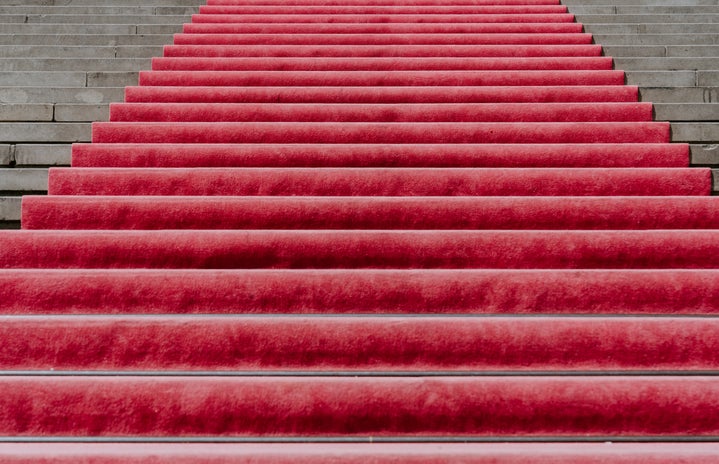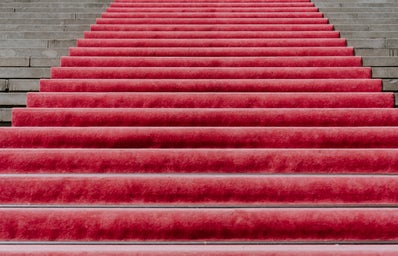The Met Gala’s fundraiser for the Metropolitan Museum of Art’s New York Costume Institute, with its reported £25,000 ticket prices and a strictly confidential guest list, is one of the most hotly anticipated events in the fashion industry. Traditionally held in May, the global pandemic pushed the event back to September 2021 when a starry line-up of A-listers collaborated with luxury fashion houses to promote ‘In America: A Lexicon of Fashion’ given the theme: ‘American Independence’.
With such a broad scope for expression, you would expect that this Met Gala was primed to become a vibrant exhibition of diversity within American culture…well, in the aftermath of the big night, the jury is still out on this one. Points of contention ranged from relying on European fashion houses, rather than purely American-bred designers in line with the theme. In a Teen Vogue article, Darnell-Jamal Lisby expressed that:
“Exclusion is never the answer, but to have American fashion designers as the dominant and sole subject from the carpet to the exhibition would have signaled a different type of motivation for American fashion we do not see often in the mainstream in favor of European fashion.”
Elsewhere, critics asked how in a post-pandemic world, such an extravagant event could convey genuine political feelings. One such example of this contention was the backlash for U.S. congresswoman Alexandria Ocasio-Cortez (AOC) whose snow-white Brother Vellies dress, designed by Aurora James, sported a bloody ‘Tax The Rich’ slogan. Considering the price of a single Met ticket, many have rebuffed AOC’s statement as a meaningless gesture which seems to have alienated her from a working-class perspective; especially as Black Lives Matter protesters rallied outside in anger over the expense of the Met Gala. Powerful or powerless? AOC’s dress fed into existing conversations around the social and economic impact of class systems in the U.S., which remains a significant dialogue, yet was marred by a degree of thoughtlessness in its presentation.
Alongside this were debates over interpretations of the ‘American Independence’ theme. Some critics claimed that American musician Troye Sivan’s Altu black dress, arm strap, and Cartier necklace was too simplistic, but this seems to miss the message concealed beneath a veneer of faceless elegance. Altu, as a brand, encourages gender-fluidity and allowed Sivan a nod to an ever-increasing climate of self-expression and the embracing of personal identity: his take on what American Independence means to him.
Perhaps most virtually shared was Kim Kardashian West’s all-black Balenciaga ensemble which concealed her entire person excluding an Ariana Grande style ponytail. Now a popular meme format as a soul-sucking dementor from the world of Harry Potter, there was a mixed reception regarding how closely Kim adhered to the theme.
“What’s more American than a T-shirt head to toe?” Kim Kardashian West’s Instagram Post, 14th Sept. 2021
The fact that Kim, a member of the media famous Kardashian tribe, can be recognized as just a silhouette is, in itself, a testament to U.S. society; which many of her fans reminded the critics. Although not every outfit at the Met was openly celebrated, they certainly prompted conversation and controversy which, after all, is a catalyst for change and the future of ‘American Independence’.
The outfits of the Met’s Generation Z hosts were undoubtedly stunning. Billie Eilish in her Marilyn Monroe-inspired Oscar de la Renta peach ballgown asserted her ‘American Independence’ as a proud vegan and animal rights activist by making the designer cease its use of animal fur as a result of their collaboration.
Meanwhile, Japanese tennis player Naomi Osaka’s richly colored Luis Vuitton dress explored her heritage featuring a gorgeous print designed by her sister Mari Osaka. This exploration of her biracial identity was not only a strong statement of what it can mean to be an American but actively applauded it.
The young poet Laureate Amanda Gorman went all out in her depiction of Lady Liberty using American designer Vera Wang. Her clutch featured a line inspired by the base of Lady Liberty – ‘Give us your tired‘ – and the Estée Lauder make-up transformation embodied her fight for female literacy as the brand’s Global Changemaker. Gorman reminded everyone of values worth standing up for.
Finally, the upcoming leads in the American novelist Frank Herbert’s ‘Dune’, Timothée Chalamet sported an eclectic mix of designers that featured Haider Ackermann and Rick Owens. Chalamet’s relaxed joggers and classic high-top Chuck Taylors, he explained to Vogue’s Keke Palmer, were intended “to keep it respectful of the two years all of us have just had.” This quartet not only brought rich, lively energy to the evening but a remarkably candid perspective.
Many other welcome appearances were made on the carpet, including superstar musician Rihanna, the first black model on Chanel’s catwalk Alton Mason, and the young Olivia Rodrigo whose first album ‘Sour’ soared to incredible heights in this year’s charts.
However, previous years’ notable attendees were absent. Musician and rapper Nicki Minaj was among the absentees due to the requirement for having received a Covid vaccination to attend. Her claims about the effects of the vaccine, including swollen testicles, have stimulated a violent explosion of online debate.
“If I get vaccinated it won’t [be] for the Met. It’ll be once I feel I’ve done enough research.” Musician and rapper Nicki Minaj tweeted at 10.21 pm on the night of the Met, 13th September
Others like Zendaya, a regular Met Gala belle, was tied up by timetable clashes and sorely missed by expectant fans.
Reflecting back on this Met Gala, and in anticipation of the one to come in May, it’s clear to see there were actually many examples of brilliance. That they shone through a subdued and uneasy backdrop was perhaps to be expected as we tentatively re-emerge into a post-pandemic world.


